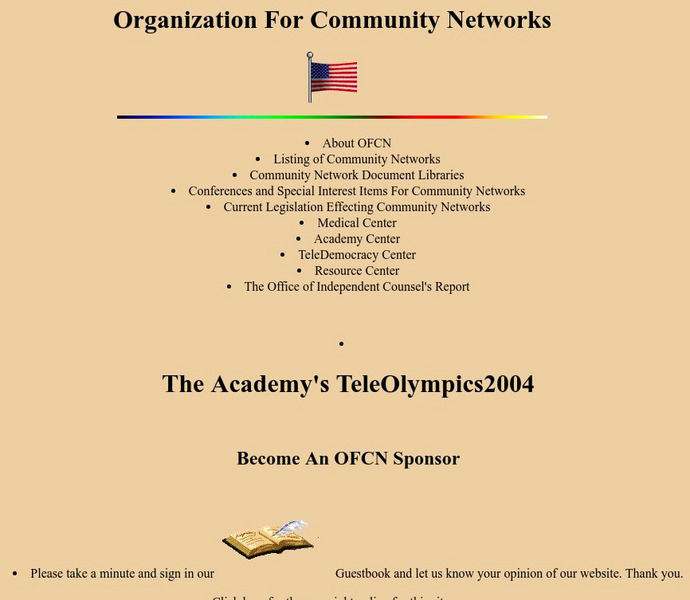Council for Economic Education
Econ Ed Link: Saving and Investing
Website with interactive activity and video teaches students about saving and investing.
Other
The Motley Fool: Mutual Funds and Fund Loads
Scroll down the page to find an explanation of the different types of mutual fund loads, and why buying a no-load fund is just as good as buying a load fund. A good financial resource.
Other
Alliance for Investor Education: Investor's Clearinghous
This site is dedicated to facilitating greater understanding of investing, investments, and the financial markets among current and prospective investors of all ages.
Council for Economic Education
Econ Ed Link: Saving and Investing Blitz
Interactive activity-based resource on economic concepts of saving and investing.
Council for Economic Education
Econ Ed Link: Developing a Financial Investment Portfolio
Learners are given brief descriptions of three individuals. They act as financial advisors and develop a financial investment portfolio for each client using internet references as they analyze various saving options. The internet web...
Council for Economic Education
Econ Ed Link: The Benefits of Investing Early
The students will see how compounding returns make investing at a young age pay off.
Council for Economic Education
Econ Ed Link: Opportunity Cost
Consumers are faced with tough choices because so many innovative and exciting products and services are available. Therefore, engraining a decision-making process that includes considering of opportunity cost is necessary to shape...
Council for Economic Education
Econ Ed Link: Here's Your Chance to Make Millions in the Stock Market (Part 1)
In this lesson, students will learn about the impact that efficient markets have on attempting to correctly time the stock market, as well as how investing in stocks should have long-term investment goals. Part I begins by having...
Organization for Community Networks
Academy Curricular Exchange: Personal Investments
An excellent lesson plan about personal investments.
Council for Economic Education
Econ Ed Link: You've Won the Lottery! Now What?
You won the lottery! The lottery officials have given you a choice. You can either receive the $10 million now in one lump sum, or you can receive $1 million a year for the next 20 years. Now what do you do?
Other
Teen Analyst: Teen Financial Information
Believe it or not, most kids graduate high school lacking basic personal finance skills. That's where TeenAnalyst.com comes in. The basic idea was to give kids the information they need to become successful investors.
Practical Money Skills
Practical Money Skills: The Payoff
Help Alex and Jess make smart financial decisions within the tight three-day deadline and complete their video for the competition in this experiential game.
Practical Money Skills
Practical Money Skills: Lessons: Grades 3 6
Four fiancial literacy lessons on allowances, money responsibility, saving, and comparison shopping. Lessons can be evaluated separately or as a group.
Council for Economic Education
Econ Ed Link: Here's Your Chance to Make Millions in the Stock Market (Part 2)
In Part II of this lesson, learners will have the opportunity to complete an interactive exercise that will take them on a historical tour of the stock market from 1920 until just after WWII. Students will learn the difference between a...
Council for Economic Education
Econ Ed Link: Here's Your Chance to Make Millions in the Stock Market (Part 3)
In Part III of this lesson, students will have the opportunity to complete an interactive exercise that will take them on a historical tour of the stock market from Post WWII through the year 2001. Students will learn the difference...
Council for Economic Education
Econ Ed Link: Collecting for Fun . . . And Profit?
Art, baseball cards, coins, comic books, dolls, jewelry and stamps are just a few examples of the many things people collect. While some people collect for fun, others hope to profit. For this lesson, young scholars explore how supply...
Consumer Financial Protection Bureau
Consumer Financial Protection Bureau: Comparing Stock Investments
Students learn how calculating capital gains and capital losses can help them evaluate stock investments.
Scholastic
Scholastic: Adventures in Math: Lesson 1: Saving Money for Your Future
Tips for learning the value of saving money to achieve your financial goals.
Consumer Financial Protection Bureau
Consumer Financial Protection Bureau: Calculating Rate of Return
Students calculate the rate of return to measure an investment's performance and answer questions about investing.
Consumer Financial Protection Bureau
Consumer Financial Protection Bureau: Comparing Saving and Investing
Students explore the differences between saving and investing and answer questions about which one they'd use to reach different financial goals.
Alabama Learning Exchange
Alex: To Market, to Market
This is a technology-based lesson to provide students an opportunity to research and select companies to invest in by 'purchasing' stocks. Students are responsible for tracking and reporting results of investments, as well as creating a...
Alabama Learning Exchange
Alex: What Is Simple and Compound Interest?
Learners will learn how simple and compound interest is figured and why it is important to maintain a savings account. Students will calculate compound interest to identify benefits of saving in interest-bearing savings accounts. They...
Alabama Learning Exchange
Alex: Retire in Style!
This lesson will explore several investment options and the risks involved with each. This is a Commerce and Information Technology lesson plan.
Alabama Learning Exchange
Alex: Introduction to Financial Markets
High school students of today are the investors of tomorrow. Students must understand, however, that they do not have to be rich to start investing! Certainly, financial markets will play a major role in the life of today's high school...













